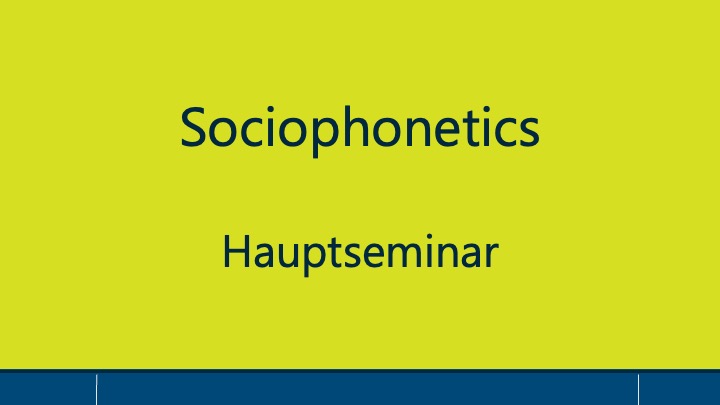Laboratory Phonology is a term used for the scientific study of the units of spoken language, their organization, their grammatical function, and their role in speech production and perception. It represents the general shift towards experimental and quantitative approaches to the study of language across the discipline of linguistics and has emerged as a dominant approach to the study of sound systems since the 1990s. Course participants will develop a perspective on how research in laboratory phonology has shaped our understanding of phonological theory and of the relationship of phonological theory to empirical phonetic data.
- DozentIn: Felicitas Kleber
- DozentIn: Jürgen Trouvain

This advanced seminar deals with a variety of topics at the interface of phonetics and sociolinguistics or, in other words, with the social life of spoken language. For example, how do social aspects shape language systems and what does systematic pronunciation variation within and across speaker groups tell us about a language community? In order to approach these topics, articles on the following topics will be presented by individual participants and discussed in the group: (1) internally and externally motivated diachronic sound change processes, (2) language and dialect acquisition, (3) gender-specific and socially determined phonetic-phonological differences, and (4) perception of regional variation.
- DozentIn: Felicitas Kleber
